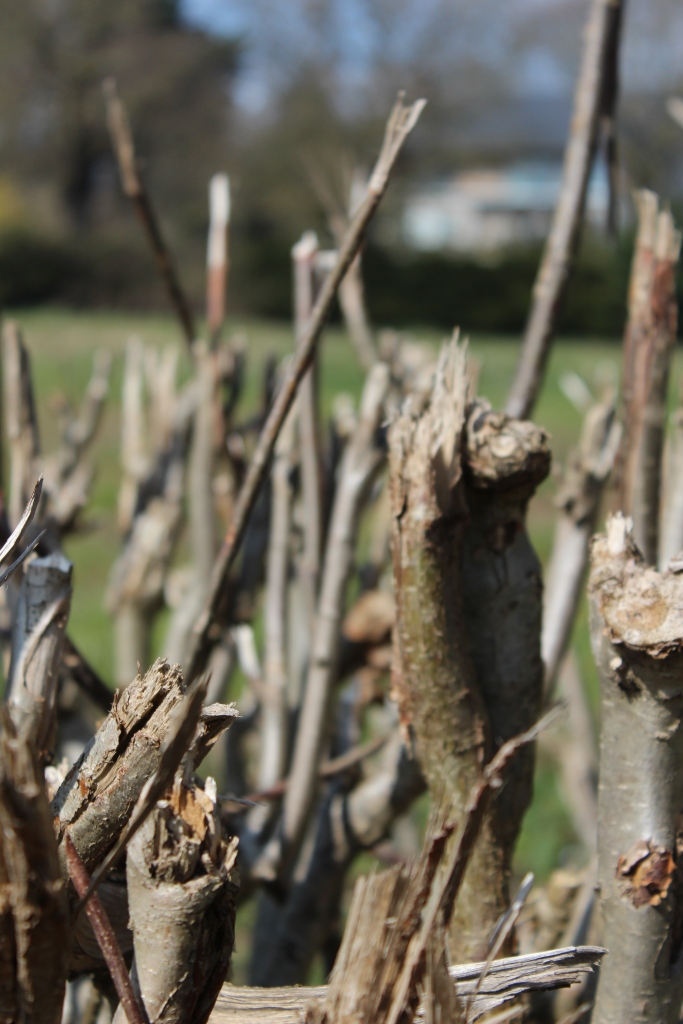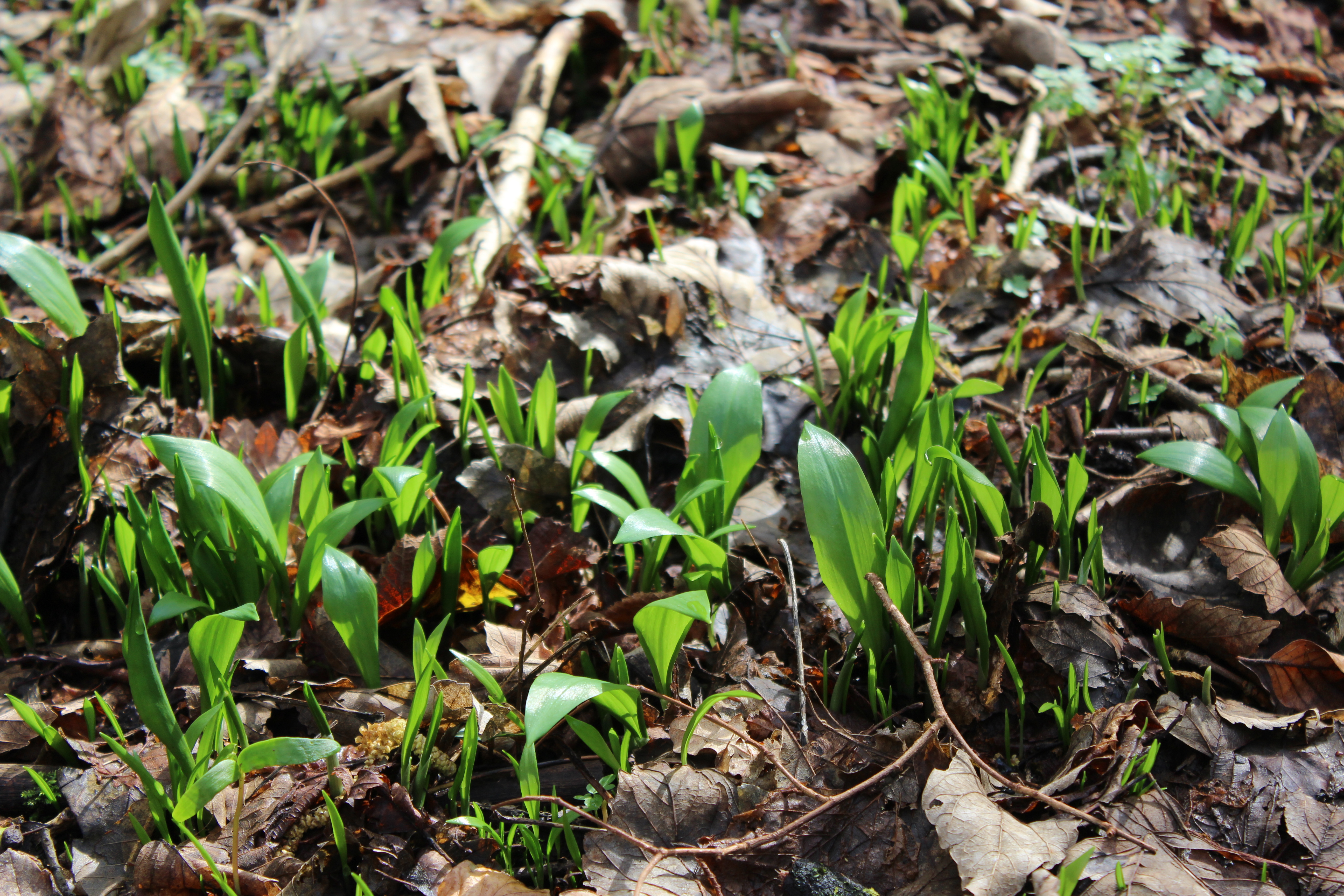


Walking, as we do, along paths and lanes, we pass many hedgerows, and the remains of many hedgerows. It grieves me deeply when I see one that has been shredded and flailed by harsh machines, so full of open wounds. This year, we walked past one such act of destruction on the very last day of February, the last legal day. Birds were scattering at the sound of the machines. It grieves me that this seems the best way, perhaps the only way, many landowners can manage their hedges. I expect it grieves them too. I expect they would rather live more harmoniously and gently with their land.
Having been deeply unsettled by the sight so many times, I thought I’d listen to that sadness and unease. I find it is reminding me of our deep connection to our places, and that what we do to them, we are doing to ourselves also. There is one particular remnant of a beautiful hedge I pass often. I have a practice now of turning aside towards it, and, absurd as it may sound and often feels, I give it my attention. I ask forgiveness, I bless the hedge. I often do this within my own heart, but sometimes, when the lane is quiet, I speak out. The result of this purtubation, and practice, is the poem below.
Beneath the poem, I am posting some pictures of a contrasting hedge, which makes my heart sing. Transition Woodbridge are doing wonderful work in our town, planting and tending. Something better is possible.

The flailing of the hazel hedge
In years past, walking
this lane now, in that time
of late-winter-early-spring,
this hedge was hedgerow,
all yellow swinging catkins
and small birds,
all leaves ready to burst,
crinkled like the corners of smiles.
This year, at each passing,
I stop now, and turn aside
the ninety degrees to face it,
to face what we have done.
It is a body-blow,
it is desecration.
Flailed and fractured,
long open wounds
split down through
the grey wood towards
the shocked, gasping root.
It is my practice now
to cross towards it,
lay my open palms
on its open splinters,
and speak –
I ask forgiveness,
we have brought
destruction on you,
beautiful hedge,
home of so much life.
I am sorry that in our world
this violence seemed prudent,
necessary, economic.
Can you forgive us?
For we have abandoned our place
of life-nurture, of life-tending.
I hope for better,
I look at the small buds.
Will they burst this year?
Will this be the year
when the flailing is final,
finally enough,
and this rill of beauty
and cheerfulness dies?
I go on my way,
head bowed, chastened,
we do not know what we do.
In beautiful contrast, we have this…..




In writing this poem, I was drawn to imagery from the Bible, and I have kept the imagery where it grew, as it seem appropriate to the immensity of what we are doing to the natural world. The poem speaks of a kind of anti-burning-bush, where Moses turned aside to the holy. I was reminded of the words of the incomparible Wendell Berry – “There are no unsacred places; there are only sacred places and desecrated places”.
You can read more about the burning bush here: Poem: On fire, but not burned. Exodus poems 5
There is also a gentle allusion to the words Jesus spoke from the cross: “Father, forgive them, for they know not what they do.” It seems that most of the time, we do not understand the wrong we are doing, and need such forgiveness. As I am writing this in Holy Week, these words are very present to me. There is a poem on that theme among those in this post: Poems – Seven Sentences from the Cross. You can read a retelling of Good Friday here.








